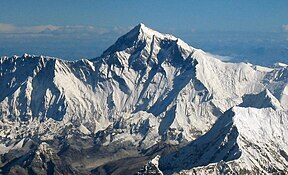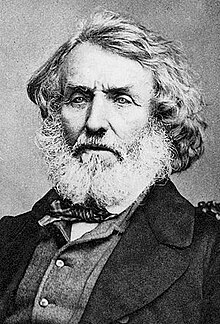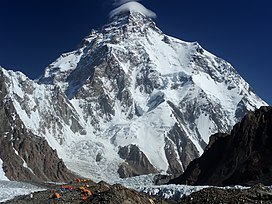George didn’t want Everest named after him
 Most of us are aware that in 2015, the Department of the Interior finally recognized “Denali” as the official name for the mountain formerly called Mount McKinley. Alaska had been calling the Peak “Denali” for forty years already. Perhaps someday the world will officially recognize the Nepalese name “Sagarmatha” as the correct name for Mount Everest (shown here).
Most of us are aware that in 2015, the Department of the Interior finally recognized “Denali” as the official name for the mountain formerly called Mount McKinley. Alaska had been calling the Peak “Denali” for forty years already. Perhaps someday the world will officially recognize the Nepalese name “Sagarmatha” as the correct name for Mount Everest (shown here).
 While Sir. George Everest (4 July 1790 – 1 December 1866) had more to do with Sagarmatha (Goddess of the Sky) than President McKinley had to do with Denali (as a surveyor working on the connection between Northern India and Nepal), he never saw the mountain, said the word “Everest” would be difficult for people living in the area to pronounce, and didn’t believe the mountain should carry his name.
While Sir. George Everest (4 July 1790 – 1 December 1866) had more to do with Sagarmatha (Goddess of the Sky) than President McKinley had to do with Denali (as a surveyor working on the connection between Northern India and Nepal), he never saw the mountain, said the word “Everest” would be difficult for people living in the area to pronounce, and didn’t believe the mountain should carry his name.
According to Wikipedia, “In 1865, the Royal Geographical Society renamed Peak XV – at the time only recently identified as the world’s highest peak – to Mount Everest in his honour. Andrew Scott Waugh, his protégé and successor as surveyor general, had been responsible for putting his name forward in 1856. Everest’s name was used as a compromise due to the difficulty of choosing between multiple local names for the mountain.
 K2 in the Karakoram range, while not quite as tall as Everest, is a more difficult climb and, as such, is often called the “Savage Mountain.” Estimates are that one person dies for every four who summit the mountain. It used to be referred to as “Godwin-Austen after the English surveyor. None of the possible local names seems to stand out, but “Masherbrum” or “Chogori” might one day be considered as more appropriate.
K2 in the Karakoram range, while not quite as tall as Everest, is a more difficult climb and, as such, is often called the “Savage Mountain.” Estimates are that one person dies for every four who summit the mountain. It used to be referred to as “Godwin-Austen after the English surveyor. None of the possible local names seems to stand out, but “Masherbrum” or “Chogori” might one day be considered as more appropriate.
I dearly love mountains and once thought I’d climb Sagarmatha and Chogori. The names of these peaks belong to those who live there. On recent visits to Glacier National Park in Montana where I did some climbing years ago, I was happy to see more and more native names (as rendered in English) being used. Mt. Wilbur, across the lake from Many Glacier Hotel, is finally being called “Heavy Shield,” for example.
Over time, we will (I hope) drift away from names imposed on mountains, lakes, and other geographic features from the outside instead of “naming local.”
–Malcolm



